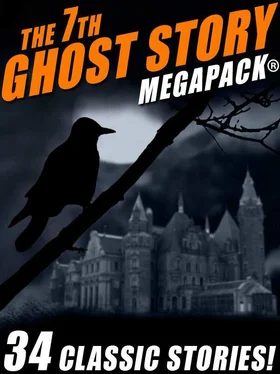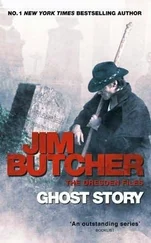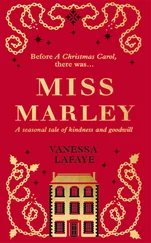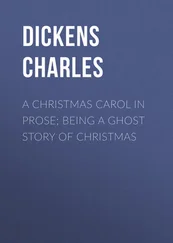“There is something very queer in this, after all. The clothes, you say, have positively disappeared. Somebody is playing you a trick, and, ten to one, your servant has a hand in it. By the way, I heard something yesterday of his kicking up a bobbery in the kitchen, and seeing a ghost, or something of that kind, himself. Depend upon it, Barney is in the plot.”
It now struck the lieutenant at once, that the usually buoyant spirits of his attendant had of late been materially sobered down, his loquacity obviously circumscribed, and that he, the said lieutenant, had actually rung his bell several times that very morning before he could procure his attendance. Mr Maguire was forthwith summoned, and underwent a close examination. The “bobbery” was easily-explained. Mr Oliver Dobbs hinted his disapprobation of a flirtation carrying on between the gentleman from Minster and the lady from the Rue St Honoré. Mademoiselle had boxed Mr Maguire’s ears, and Mr Maguire had pulled Mademoiselle upon his knee, and the lady had not cried Mon Dieu! And Mr Oliver Dobbs said it was very wrong; and Mrs Botherby said it was “scandalous,” and what ought not to be done in any moral kitchen; and Mr Maguire had got hold of the Honourable Augustus Sucklethumbkin’s powder-flask, and had put large pinches of the best double Dartford into Mr Dobbs’s tobacco-box;—and Mr Dobbs’s pipe had exploded, and set fire to Mrs Botherby’s Sunday cap;—and Mr Maguire had put it out with the slop-basin, “barring the wig”;—and then they were all so “cantankerous,” that Barney had gone to take a walk in the garden; and then—then Mr Barney had seen a ghost!
“A what? you blockhead!” asked Tom Ingoldsby.
“Sure then, and it’s meself will tell your honour the rights of it,” said the ghost-seer. “Meself and Miss Pauline, sir, or Miss Pauline and meself, for the ladies comes first anyhow, we got tired of the hobstroppylous skrimmaging among the ould servants, that didn’t know a joke when they seen one: and we went out to look at the comet,—that’s the rory-bory-alehouse, they calls him in this country,—and we walked upon the lawn—and divil of any alehouse there was there at all; and Miss Pauline said it was because of the shrubbery maybe, and why wouldn’t we see it better beyonst the trees?—and so we went to the trees, but sorrow a comet did meself see there, barring a big ghost instead of it.”
“A ghost? And what sort of a ghost, Barney?”
“Och, then, divil a lie I’ll tell your honour. A tall ould gentleman he was, all in white, with a shovel on the shoulder of him, and a big torch in his fist,—though what he wanted with that it’s meself can’t tell, for his eyes were like gig-lamps, let alone the moon and the comet, which wasn’t there at all,—and ‘Barney,’ says he to me,—’cause why he knew me,—‘Barney,’ says he, ‘what is it you’re doing with the colleen there, Barney?’—Divil a word did I say. Miss Pauline screeched, and cried murther in French, and ran off with herself; and of course meself was in a mighty hurry after the lady, and had no time to stop palavering with him any way; so I dispersed at once, and the ghost vanished in a flame of fire!”
Mr Maguire’s account was received with avowed incredulity by both gentlemen; but Barney stuck to his text with unflinching pertinacity. A reference to Mademoiselle was suggested, but abandoned, as neither party had a taste for delicate investigations.
“I’ll tell you what, Seaforth,” said Ingoldsby, after Barney had received his dismissal, “that there is a trick here, is evident; and Barney’s vision may possibly be a part of it. Whether he is most knave or fool, you best know. At all events, I will sit up with you tonight and see if I can convert my ancestor into a visiting acquaintance. Meanwhile your finger on your lip!”
“’Twas now the very witching time of night,
When churchyards yawn, and graves give up their dead.”
Gladly would I grace my tale with decent horror, and therefore I do beseech the “gentle reader” to believe, that if all the succedanea to this mysterious narrative are not in strict keeping, he will ascribe it only to the disgraceful innovations of modern degeneracy upon the sober and dignified habits of our ancestors. I can introduce him, it is true, into an old and high-roofed chamber, its walls covered on three sides with black oak wainscotting, adorned with carvings of fruit and flowers long anterior to those of Grinling Gibbons; the fourth side is clothed with a curious remnant of dingy tapestry, once elucidatory of some Scriptural history, but of which not even Mrs Botherby could determine. Mr Simpkinson, who had examined it carefully, inclined to believe the principal figure to be either Bathsheba, or Daniel in the lions’ den; while Tom Ingoldsby decided in favour of the King of Bashan. All, however, was conjecture, tradition being silent on the subject.—A lofty arched portal led into, and a little arched portal led out of, this apartment; they were opposite each other, and each possessed the security of massy bolts on its interior. The bedstead, too, was not one of yesterday, but manifestly coeval with days ere Seddons was, and, when a good four-post “article” was deemed worthy of being a royal bequest. The bed itself, with all the appurtenances of palliasse, mattresses, etc., was of far later date, and looked most incongruously comfortable; the casements, too, with their little diamond-shaped panes and iron binding, had given way to the modern heterodoxy of the sash-window. Nor was this all that conspired to ruin the costume, and render the room a meet haunt for such “mixed spirits” only as could condescend to don at the same time an Elizabethan doublet and Bond Street inexpressibles.
With their green morocco slippers on a modern fender in front of a disgracefully modern grate, sat two young gentlemen, clad in “shawl pattern” dressing gowns and black silk stocks, much at variance with the high cane-backed chairs which supported them. A bunch of abomination, called a cigar, reeked in the left-hand corner of the mouth of one, and in the right-hand corner of the mouth of the other;—an arrangement happily adapted for the escape of the noxious fumes up the chimney, without that unmerciful “funking” each other, which a less scientific disposition of the weed would have induced. A small pembroke table filled up the intervening space between them, sustaining at each extremity, an elbow and a glass of toddy;—thus in “lonely pensive contemplation” were the two worthies occupied, when the “iron tongue of midnight had tolled twelve.”
“Ghost-time’s come!” said Ingoldsby, taking from his waistcoat pocket a watch like a gold half-crown, and consulting it as though he suspected the turret-clock over the stables of mendacity.
“Hush!” said Charles; “did I not hear a footstep?”
There was a pause—there was a footstep—it sounded distinctly—it reached the door—it hesitated, stopped, and Tom darted across the room, threw open the door, and became aware of Mrs Botherby toddling to her chamber, at the other end of the gallery, after dosing one of the housemaids with an approved, julep from the Countess of Kent’s “Choice Manual.”
“Good night, sir!” said Mrs Botherby.
“Go to the devil!” said the disappointed ghost-hunter.
An hour—two—rolled on, and still no spectral visitation; nor did aught intervene to make night hideous; and when the turret-clock sounded at length the hour of three, Ingoldsby, whose patience and grog were alike exhausted, sprang from his chair, saying,—
“This is all infernal nonsense, my good fellow. Deuce of any ghost shall we see tonight; it’s long past the canonical hour. I’m off to bed; and as to your breeches, I’ll insure them for the next twenty-four hours at least, at the price of the buckram.”
Читать дальше












